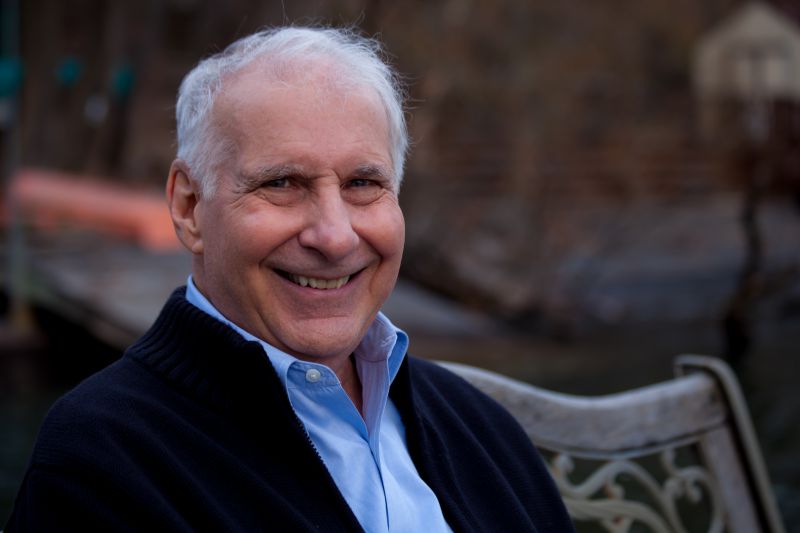From FDA to GSK: The Dangerous Partnership between Government and Big Pharma
- August 15, 2008
- / Admin
- / blogs,huffingtonpost

08/15/2008
Go to GSK.com and click on "Latest Press Releases" and then click on "Dan Troy appointed Senior Vice President and General Counsel for GlaxoSmithKline." It's dated July 22, 2008. Above the press release you'll see an ad with four people dancing ecstatically with their legs and arms flailing in all directions -- presumably because GSK makes joyful drugs. Really, it's a picture of GSK executives in a rite of greed celebrating the inclusion of attorney Dan Troy into their inner circle. The press release explains the reason for such a celebration at the pharmaceutical giant: "Dan was formerly Chief Counsel for the US Food and Drug Administration (FDA), where he served as a primary liaison to the White House ... "
Right now GSK is being bombarbed with product liability suits, many claiming that the company hid data on Paxil causing suicide. As I described in an earlier blog, the FDA has been going to court on behalf of drug companies like GSK to claim preemption -- the principle that a company cannot be sued for negligence in the development of a product if the product has been approved by the FDA. The principle will soon be tested in front of the U.S. Supreme Court. If the court upholds preemption, it will become impossible to hold drug companies responsible for their rampant negligence in the developing and marketing of their products. The public is already kept in the shadows when drug companies withhold data about the risks of their drugs; the public will be kept wholly in the dark if the companies cannot be sued and forced to reveal their hidden data.
Guess who was the architect of preemption? Yes, the same Daniel Troy when he was at the FDA, acting as Chief Counsel for the FDA with a special role as White House liasance. From FDA Chief Counsel to GSK General Counsel! Life rewards some people. As one blogosphere commenter declared, "It's hard to keep a bad man down."
As true as the "bad man" designation may be, the bad system is even more important. The FDA is not so much a watchdog agency as an active member of the psychopharmaceutical complex working on behalf on the drug industry. Sometimes the agency gets pushed by public outrage into finding fault with the drug companies, but it always responds with one thing in mind--how to minimize the financial damage to its pharmaceutical industry partners.
For years, the FDA official most responsible for the approval of psychiatric drugs was Paul Lieber. What did he do when he left the FDA after years of devoted service to the drug companies? He became a consultant to the drug companies. It wasn't much of a change in role.
Troy has always been a drug company advocate. He's against the regulation of drug company advertising directly to the consumer and at the FDA he discouraged the issuing of warning letters about adverse drug effects.
Meanwhile, GSK is facing some tough tests. The U.S. Department of Justice is investigating GSK's handling of its antidepressant Paxil. The Senate Finance Committee is also probing GSK's conduct in the deveopment of Paxil.
Oh, by the way, Troy didn't go directly from the FDA to GSK. He stopped along the way at a D.C. law firm where he represented drug makers and trade groups on issues concerning the FDA and government regulation.
Danial Troy can be described as a poster boy for how to succeed in the current regulatory climate: Go to work for a government regulatory agency, such as the FDA; do a lot of favors for the group you're supposed to be regulating, such as the pharmaceutical industry; and then get a great job in industry when you leave. This "revolving door" has a long history, but there's hardly a more egregious example than Dan Troy going to work for GSK. And there's hardly a more opportunistic company than GSK.
GSK is famous for its direct to consumer advertising. In promoting Paxil, it likes to suggest that depression "may" be caused by a biochemical imbalance. There's no truth to it. It is Paxil that causes biochemical imbalances. Increased suicidal behavior is one result of these drug-induced biochemical disruptions. The company itself has admitted that the suicidality is increased by more than sixfold in all ages of depressed patients taking Paxil compared to the same or similar patients taking a sugar pill in controlled clinical trials.
Hats off to GSK! What a coup to get Dan Troy. But then ... they've been cultivating each other for years.
In all fairness, I've not only been involved for many years as a medical expert in product liability suits against GSK, I was the first one to discover and to blow the whistle on the how the company has been hiding and distorting data confirming that Paxil causes suicidality. You can find the data in my earlier blogs, on my website, in my published scientific articles (available on my website) and in my latest book published this month, Medication Madness: A Psychiatrist Exposes the Dangers of Mood-Altering Medications (St. Martin's Press, 2009).
Meanwhile, what is the public to do? This is a political problem extending over decades and administrations -- the way our government increasingly supports its most financially powerful constituents, and the pharmaceutical industry is probably the most powerful lobby of all. You could begin by supporting Senator Chuck Grassley's attempts to probe GSK.
You might also wonder if you should be using the products of companies like GSK, in particular psychiatric drugs like Paxil that do more harm than good. But there's a problem in stopping psychiatric drugs as well as starting them. For years, GSK hid the reality that Paxil causes severe withdrawal reactions including painful shocking sensations in the head, severe dizziness and imbalance, irritability and aggression, and potentially crushing fatigue depression. Withdrawal symptoms can begin within a day or two of stopping the drug.
The company literally has trapped millions of people into feeling compelled to take Paxil or to endure horrific withdrawal reactions. Withdrawal from Paxil needs to be done slowly with experienced clinical supervision and a support network. In Medication Madness, in addition to describing how psychiatric drugs can drive people in bizarre and dangerous behaviors, I also describe how to more safely withdraw from psychiatric drugs.
It's time to wake up to the dark reality that drug companies, and especially those manufacturing psychiatric drugs, cannot be trusted to provide the truth about the risks associated with their products. Sadly, you cannot trust your doctor any more than you can trust his or her sources of information -- the drug companies and the FDA. Your life depends on becoming an educated, skeptical and even distrusting consumer.
 Psychiatric Reform Accomplishments
Psychiatric Reform Accomplishments